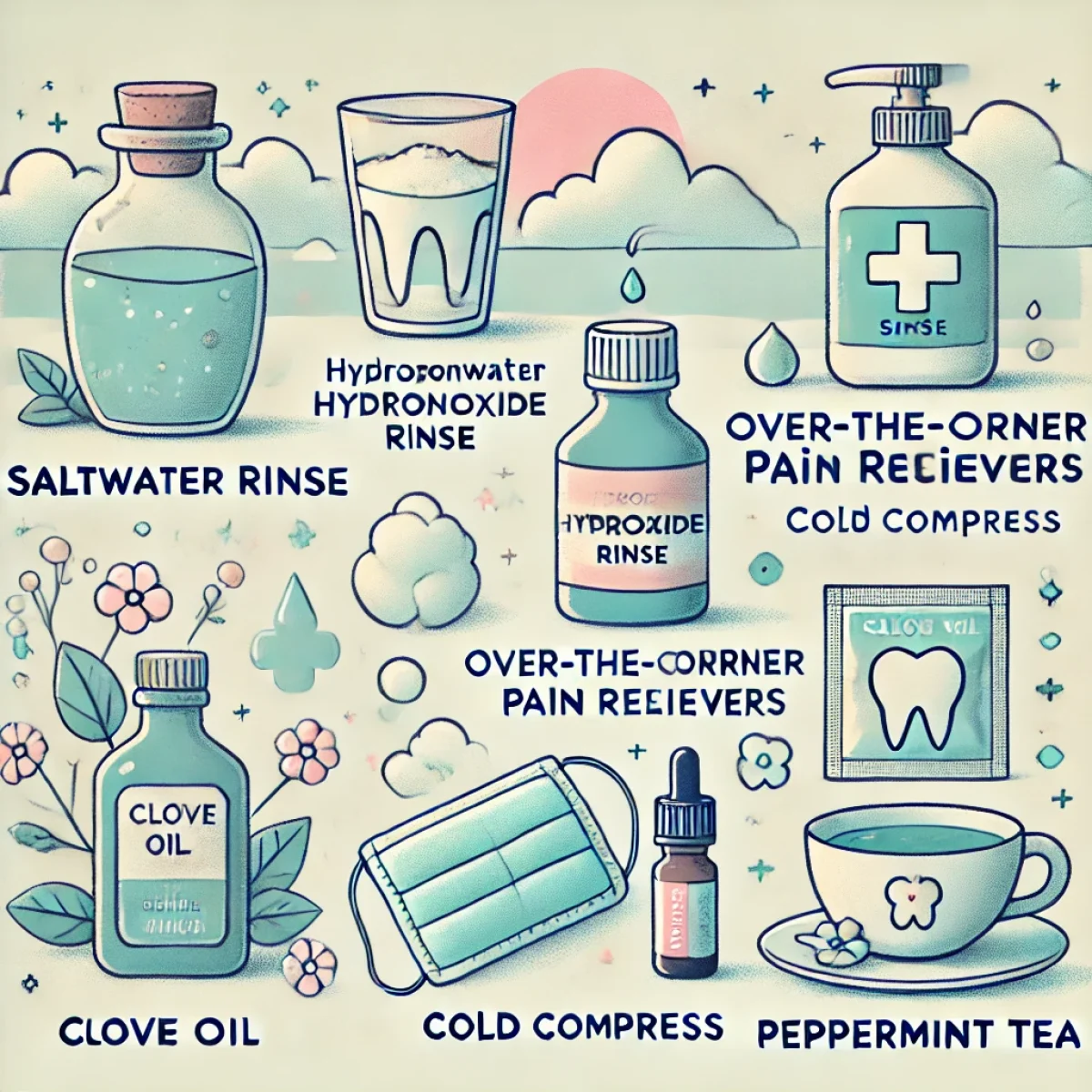A toothache can be a distressing experience, combining pain in your head, gums, and mouth. While visiting a dentist should always be your priority, there are various effective home remedies to ease the discomfort temporarily. Here, we’ll cover simple and practical methods for toothache relief and address sensitivity issues.
For more helpful tips and remedies, check out our YouTube channel and follow us on Instagram for daily updates and insights!”
1. Effective Home Remedies for Toothache Relief
Saltwater Rinse
A saltwater rinse is one of the simplest and most effective methods for toothache relief.
- How to use: Mix half a teaspoon of salt in 8 ounces of warm water. Swish it gently in your mouth and spit it out.
- Benefits: Cleans the area, reduces inflammation, and dislodges food particles stuck around the tooth.
Hydrogen Peroxide Rinse
Hydrogen peroxide can help alleviate pain and reduce bacteria in your mouth.
- How to use: Mix equal parts of hydrogen peroxide and water. Rinse your mouth gently and spit it out—never swallow the mixture.
- Caution: Always dilute hydrogen peroxide, as concentrated use can be harmful.
Over-the-Counter (OTC) Pain Relievers
Pain relievers like ibuprofen or acetaminophen can be used to reduce toothache pain.
- For adults: Options include ibuprofen, acetaminophen, or naproxen.
- For children: Consult a dentist for safe recommendations.
Cold Compress
Swelling or irritation from toothache can be managed with a cold compress.
- How to use: Wrap an ice pack in a towel and apply it to your cheek for 15-20 minutes.
- Benefits: Reduces swelling, numbs pain, and minimizes irritation.
OTC Anesthetics
Gels containing benzocaine can temporarily numb the affected area.
- How to use: Apply a small amount directly to the gums around the aching tooth.
- Note: Benzocaine provides temporary relief and should be used sparingly.
Clove Oil for Tooth Pain
Clove oil has natural numbing properties.
- How to use: Soak a cotton ball in clove oil and press it against the sore tooth.
- Caution: While clove oil can be effective, its impact is temporary and not a substitute for professional dental care.
Ice Therapy
Using ice to relieve pain can block pain signals from reaching your brain.
- How to use: Hold ice cubes in your fingers and rub them along your cheek or gums for 5-7 minutes.
2. Alternative Remedies for Toothache Relief
Vanilla Extract
Vanilla extract contains alcohol, which can numb the pain and soothe the gums.
- How to use: Apply a small amount of vanilla extract to the aching tooth with a cotton ball.
Peppermint Tea
A warm peppermint tea bag can help relieve gum and tooth discomfort.
- How to use: Place the slightly cooled tea bag on the affected area for soothing relief.
Herbal Remedies
Herbs and natural ingredients like guava leaves, eucalyptus leaves, and turmeric have been traditionally used to address toothaches.
- Note: Scientific evidence for their effectiveness varies. Use them cautiously and consult a dentist for persistent pain.
3. Home Remedies for Sensitive Teeth
Tooth sensitivity often signals an underlying issue such as gum recession, enamel erosion, or dental cavities.
Desensitizing Toothpaste
Using desensitizing toothpaste consistently can reduce sensitivity.
- How to use: Apply a small amount to the affected area before bed for best results.
Honey and Warm Water
This combination can soothe mild sensitivity and reduce bacterial growth.
- Caution: Avoid if your sensitivity is triggered by sweet foods.
Turmeric Paste
Turmeric’s anti-inflammatory properties can help reduce sensitivity.
- How to use: Mix turmeric with water to form a paste and apply it to the affected area.
4. When to See a Dentist
It’s crucial to consult a dentist if:
- Pain persists for more than 24-48 hours.
- Swelling is accompanied by fever, which may indicate an abscess.
- Clicking sounds or pain in your jaw suggest temporomandibular joint (TMJ) issues.
5. Precautions with Home Remedies
While home remedies can provide temporary relief, they are not substitutes for professional dental care.
- Avoid prolonged use of OTC pain relievers as they can have side effects like liver damage or stomach issues.
- Consult your dentist if symptoms worsen or fail to improve.
By following these methods, you can alleviate discomfort until you receive professional care. Remember, maintaining good oral hygiene and regular dental checkups are the best ways to prevent toothaches and related issues.





